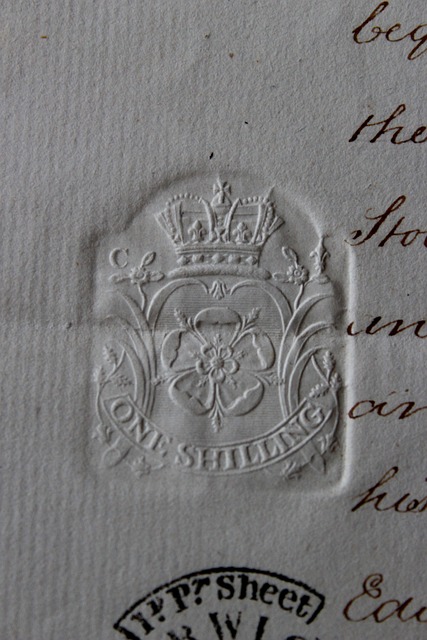In the United Kingdom, notarised translation services UK are essential for legal documents drafted in languages other than English to be considered authentic and compliant with legal standards. These services offer translations that are legally recognized, enabling their use in court or for official purposes. The process involves dual verification by both a qualified translator and a notary public, who affixes an official seal, confirming the document's accuracy and the translator's identity, thus maintaining the integrity of the content within the UK's legal framework. These services are indispensable for various scenarios such as property transactions, corporate affairs, immigration processes, and international adoptions. Engaging with notarised translation services UK is crucial for both legal professionals and individuals to ensure that their documents meet the multicultural legal requirements of the country, preventing any legal issues that could arise from inaccurate translations. These translations are especially critical for complex legal texts like contracts, wills, patents, and court orders, where precision is paramount to avoid legal complications. Clients should verify the accreditation of notarised translation services UK providers with bodies like the Institute of Translation and Interpreting (ITI) or the Chartered Institute of Linguists (CIOL), ensuring they adhere to the necessary standards for use in legal contexts.
navigating the legal landscape of the UK, individuals and businesses alike encounter situations where documents must be translated and notarised with precision and compliance. This article delves into the critical role of notarised translation services in the UK’s legal domain, offering guidance on selecting reputable providers and understanding the intricacies of the notarisation process. Whether you’re dealing with international contracts, immigration forms, or court documents, mastery of this topic is indispensable for legal submissions. Discover how to ensure your translations meet UK standards and adhere to legal requirements, ensuring accuracy and legitimacy in every official transaction.
- Understanding the Necessity of Notarised Translation Services in the UK Legal Sphere
- The Role of Certified Translators in Legal Document Submissions
- Comprehensive Guide to the Notarisation Process for Translations in the UK
- Identifying Reputable and Trusted Notarised Translation Providers in the UK
- Navigating Legal Requirements: What Types of Documents Need Notarised Translations in the UK?
- Best Practices for Ensuring Accurate and Compliant Notarised Translations for Legal Use in the UK
Understanding the Necessity of Notarised Translation Services in the UK Legal Sphere

In the UK, legal documents that are presented in a language other than English must undergo a precise and authoritative translation process to ensure their authenticity and compliance with the law. Notarised translation services UK play a pivotal role in this context, as they provide legally recognised translations that stand up in court or for official use. The necessity of such services arises from the legal requirement for documents to be accurately translated and notarised to be acknowledged as genuine by authoritative bodies within the UK’s legal framework. This dual process of translation and notarisation verifies the accuracy of the content and the identity of the translator, thereby upholding the integrity of the information being presented. Legal professionals and individuals alike must engage with these services to navigate the complexities of cross-lingual document submission, ensuring that every legal submission is clear, precise, and legally sound within the UK’s multicultural landscape. The reliability of notarised translation services UK is indispensable for various applications, including but not limited to property transactions, corporate matters, immigration procedures, and international adoptions, where the accuracy and credibility of translations are paramount.
The Role of Certified Translators in Legal Document Submissions

In the legal realm within the United Kingdom, the accuracy and authenticity of translations are paramount. Notarised translation services UK play a critical role in this context, as they ensure that legal documents presented to courts or regulatory bodies are not only correctly translated but also bear the official seal of a certified translator. These professionals are specialists who have been authorised by a notary public to translate legal texts. Their expertise lies in accurately conveying the content from one language to another while maintaining the original document’s intent and meaning. This is particularly important for documents such as contracts, wills, patents, and court orders, where even the slightest error can lead to misunderstandings or legal complications. The notarisation process verifies the identity of the translator and attests to the truthfulness of their translation work, thereby providing a guarantee of the document’s authenticity. This adds an additional layer of security for legal entities and individuals alike, ensuring that all translated documents comply with UK legal standards and are accepted by relevant authorities without issue. Utilising notarised translation services UK is an essential step in the legal submission process, safeguarding against potential legal pitfalls and upholding the integrity of the judicial system.
Comprehensive Guide to the Notarisation Process for Translations in the UK

When engaging with legal submissions within the UK, the accuracy and authenticity of translated documents are paramount. Notarised translation services UK play a crucial role in this process by ensuring that all translations are precise and legally endorsed. The notarisation process involves a qualified and impartial notary public confirming the identity of the translator and attesting to the truthfulness and accuracy of the translation. This is achieved through a formal certificate attached to the translated document, which states that the translation is a true and accurate representation of the original content. The notary’s role is to verify the credentials of the translator, ensuring they possess the necessary expertise and fluency in both languages involved. Furthermore, the notarised seal or stamp on the document serves as an assurance to legal entities and authorities that the translation has undergone a rigorous examination and meets the required standards for use in legal proceedings. Utilising professional notarised translation services UK is essential for anyone submitting documents where precise language and legal validity are non-negotiable, ensuring compliance with UK legal requirements and international regulations.
Identifying Reputable and Trusted Notarised Translation Providers in the UK

When engaging with legal submissions within the UK, it is imperative to ensure that all translated documents are accurate and legally binding, which is where notarised translation services UK come into play. These services offer a certificate of authenticity from a public notary, verifying the translator’s identity and the translated content’s accuracy. To identify reputable and trusted notarised translation providers in the UK, one must look for several key attributes. Firstly, check if the service is accredited by relevant bodies, such as the Institute of Translation and Interpreting (ITI) or the Chartered Institute of Linguists (CIOL). This ensures a high standard of professionalism and expertise. Additionally, it’s advisable to select a translation provider with notaries who are members of the Faculty of Public Notaries in England and Wales or their Scottish or Northern Irish equivalents. These notaries are authorised to notarise documents and affix their official seal of approval. Furthermore, reading client testimonials and reviews can provide insight into the reliability and trustworthiness of a translation service provider. By carefully vetting these aspects, individuals and organisations alike can confidently choose a notarised translation services UK provider that meets their legal needs with precision and compliance.
In the realm of legal submissions, the accuracy and legality of translated documents are paramount. The notarised translation services UK industry is robust, with numerous providers competing for trust and efficiency. To navigate this landscape successfully, potential clients should consider a service’s track record in handling similar legal translations and their proficiency in the specific language pairs required. It is also crucial to verify that the provider offers a comprehensive range of languages, ensuring they can cater to multilingual needs. Additionally, the provider’s adherence to the General Data Protection Regulation (GDPR) and other data protection laws is vital to protect sensitive information. By focusing on these factors, clients can select a notarised translation services UK provider that upholds the highest standards of quality, security, and legality for their legal submissions.
Navigating Legal Requirements: What Types of Documents Need Notarised Translations in the UK?

Best Practices for Ensuring Accurate and Compliant Notarised Translations for Legal Use in the UK

When engaging with notarised translation services in the UK for legal submissions, accuracy and compliance are paramount. Every translated document must reflect the precise meaning of the original text, as any discrepancies could lead to complications or even invalidate legal proceedings. To ensure the highest level of precision, it is crucial to employ translators who are not only proficient in both languages but also specialise in legal translation. These experts are well-versed in the nuances of legal terminology and can navigate the complexities inherent in legal documents. They must adhere to professional codes of conduct, which include maintaining confidentiality and impartiality throughout the translation process.
Furthermore, the translator must be authorised to perform notarisation. This is a legal certification that verifies the identity of the translator and attests to the truthfulness and accuracy of their translation. The notary public involved should have a clear understanding of the legal system in both the source and target languages, ensuring that all translations comply with UK regulations. It is also essential for clients to check the credentials of both the translator and the notary. Verifying their professional qualifications, certifications, and registration status with relevant bodies like the Chartered Institute of Linguists (CIOL) or the Institute of Translation & Interpreting (ITI) will provide assurance of their competence. By adhering to these best practices, notarised translation services in the UK can deliver legally robust translations that stand up to scrutiny and support the legal processes they are intended for.
In conclusion, navigating the legal landscape of the UK requires precise and legitimate documentation, where notarised translation services UK play a pivotal role. The intricacies of legal submissions necessitate the expertise of certified translators, ensuring that all translated documents uphold the integrity and compliance demanded by the British legal framework. By choosing reputable providers specialising in notarised translation services UK, individuals and organisations can confidently meet their legal document requirements with accuracy and assurance. Adhering to the best practices outlined for these translations is crucial for their acceptance and validity within the UK’s legal domain, thereby safeguarding one’s interests and facilitating seamless legal processes.
